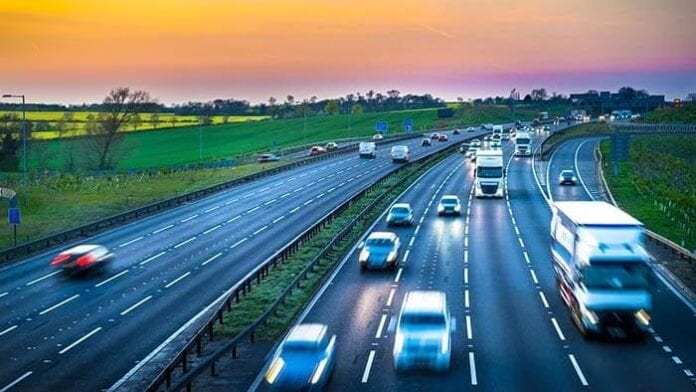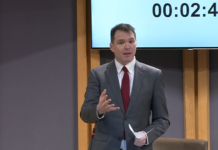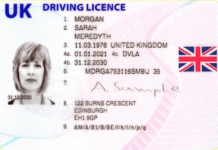Motorists driving fewer miles, a drop in road traffic accidents and fewer cars on the road during the COVID-19 pandemic spark the biggest drop in car insurance prices in more than six years(1)
- Confused.com report reveals how lockdown saved drivers money.
- The average annual mileage in the UK has dropped by 43% since before the pandemic, as drivers expect to be on the road less.
- Police forces report a 26% drop in road accidents in 2020(2).
- The number of cars declared ‘off the road’ more than doubled at the start of the pandemic last year, with twice as many applications compared to March 2020(3).
- Society of Motor Manufacturers and Traders (SMMT) figures show new car sales in March and September last year at their lowest point in 10 years(4).
Motorists in the UK are now paying some of the cheapest prices for their car insurance since 2016(1), and new research suggests that the COVID-19 pandemic could be the reason for these significant savings.
A new report by Confused.com has found that the number of road traffic accidents has dropped significantly, as motorists claim to be driving fewer miles than before the pandemic started. This, among many other reasons, contributes to a significant reduction in the amount drivers are now paying for their car insurance.
At the beginning of 2021, Confused.com’s quarterly car insurance price index reported the steepest annual drop in car insurance prices in more than six years. The average price paid by drivers is now £538, on average(1) – a staggering £87 less than the same period last year. This means insurers have dropped their prices drastically since the start of the COVID-19 pandemic. This time was financially challenging for many people, and so no doubt a drop in the annual car insurance bill was very welcome. But why have prices dropped so much?
New Freedom of Information data obtained by Confused.com reports a 26% drop in road traffic accidents last year(2). According to the data, police forces reported 192,001 road traffic accidents last year – most of which was spent under lockdown restrictions. This is down from 258,994 in 2019. That’s equivalent to 710 accidents reported per day in 2019, and 525 in 2020, on average.
This is arguably down to the fact that UK roads were significantly quieter last year, meaning the chances of accidents occurring was a lot lower. Between lockdowns and working from home, driving became something of a novelty for some. In fact, the number of times per week drivers would use their car dropped from five to three during the pandemic, on average. And this has meant that the number of miles people are driving per year has dropped significantly.
According to the research by Confused.com, the average UK annual mileage dropped from 7,239 before the pandemic, to 4,113. And according to the research, this could continue as restrictions ease, as more than one in three (37%) UK drivers claim they are likely to use their car less once we are out of lockdown. For almost two in five (38%), this is because they won’t be commuting to work as often, while almost one in three (31%) will be making fewer journeys across the UK.
Similarly, the number of drivers taking their car off the road increased significantly at the beginning of the pandemic. DVLA data shows that the number of people applying for a statutory off the road notification (SORN) jumped from 250,352 to 526,747 between February and March last year(3). In total, almost 3.6 million successful SORN applications were made last year, compared to 3.4 million in 2019(3). Equivalent to 3.7 million UK drivers also sold their car during the pandemic(5), with more than one in four (27%) claiming they couldn’t justify paying for tax and insurance on a car they weren’t using. One in four (25%) also found they no longer needed the car, while more than one in seven (15%) simply needed the cash.
With so many cars sold, or sitting at home on the driveway, the number of cars on UK roads was significantly lower during the COVID-19 pandemic, meaning the risk of accidents was a lot less than usual. And this is a key consideration for insurers when they offer a customer a price for their car insurance. As risk fell, insurers were able to reduce their prices to reflect the fact that fewer claims were likely to be made, meaning drivers were able to make significant savings when shopping around for their car insurance.
However, it isn’t just the reduced risk on roads that arguably contributes to today’s car insurance costs. Figures released by SMMT in 2020 shows new car sales in March and September last year were at their lowest for 10 years(4). Typically, newer cars carry more value, which means they are significantly more expensive to insure as the cost of repairing any damage in the event of a claim would be higher. With considerably fewer new cars on the road, insurers were less likely to be forking out on hefty claims for brand new cars.
It isn’t just car insurance that is helping people save the pennies. The way people use their cars changed a lot last year, which means that many drivers made significant savings on their regular outgoings. Drivers claim to have saved £92 per month, or £1,104 over a 12-month period, on average. For most (83%), these savings came from generally using less fuel, while almost one in two (49%) saved money from making fewer long journeys. One in four (25%) also saved by having fewer or no repairs made to their car. However, this could be down to the fact that many garages were forced to shut during the early stages of the lockdown, as the government announced the MOT holiday – entitling people to a six-month extension on their MOT certificate(6). More than one in seven (15%) drivers made use of this – that’s equivalent to six million(7) drivers.
Lockdown also sparked changing behaviour in drivers, making some more aware of the impact of their driving habits on the environment. It was reported that emissions dropped 10% during the COVID-19 lockdown(8), which could explain why almost a third (31%) of drivers who said they would use their car less in the future claimed they’d do so because they were conscious of the impact it had on the environment. Almost a third (29%) of drivers have even said they would consider buying an electric car in the future. Almost one in 10 (9%) would even look to reduce the number of cars in their household.
While it’s clear that lockdown has helped many drivers to save money – something that was no doubt welcomed during a considerably difficult time for many – lockdown restrictions are starting to ease. While many drivers may now think that they won’t be behind the wheel as often, the opportunity to get out and explore, or visit family and friends further afield when it is safe to do so might be too good of an opportunity to miss. And as traffic slowly builds up over time, we could start to see the number of accidents creep up, people’s mileage returning to pre-lockdown figures, and people looking to invest in newer cars once more. And with this, car insurance prices could begin to creep up over time. But how quickly all this happens remains to be seen.
Alex Kindred, car insurance expert at Confused.com, comments: “We are seeing drivers paying the lowest price on record since 2016 for their car insurance, something we have no doubt many people will welcome after an incredibly challenging and turbulent year. And this is simply because so much has changed since the COVID-19 pandemic hit in March last year.
“Our report shows that roads are a lot quieter, and police forces are reporting a significant drop in the number of accidents they’re attending to. This all means that insurers are facing a lower risk of paying out on claims. And the good news for drivers is that this translates into cheaper prices for them.
“However, as we ease out of lockdown over the next few months, things are likely to resume to some sense of normality. How this affects driving habits remains to be seen. Even if insurance prices do start to creep up, there are still ways for drivers to keep costs down – although it can be confusing to know where to start. We’ve compiled our top tips – and the first thing to do is update your mileage. If you’re commuting less, or making fewer long-distance trips, this could be a few pounds saved!”
Help keep news FREE for our readers
Supporting your local community newspaper/online news outlet is crucial now more than ever. If you believe in independent journalism, then consider making a valuable contribution by making a one-time or monthly donation. We operate in rural areas where providing unbiased news can be challenging. Read More About Supporting The West Wales Chronicle
























